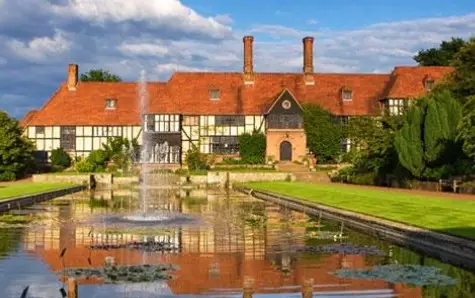From the Wisley website:
The Royal Horticultural Society was given Wisley in 1903, although at that time only a small part of the 24ha (60 acres) estate was actually cultivated as a garden, the remainder being wooded farmland. The original garden was the creation of George Fergusson Wilson – businessman, scientist, inventor and keen gardener and a former Treasurer of the Society.
In 1878 he purchased the site and established the ‘Oakwood experimental garden’, with the idea of making ‘difficult plants grow successfully’. The garden acquired a reputation for its collections of lilies, gentians, Japanese irises, primulas and water plants. Oakwood (known in recent history as the Wild Garden) is the direct descendant of that original garden and despite changes is still true to the original concept.
After Wilson’s death in 1902, Oakwood and the adjoining Glebe Farm were bought by Sir Thomas Hanbury, a wealthy Quaker who had founded the celebrated garden of La Mortola, on the Italian Riviera. In 1903, Sir Thomas presented what become known as the Wisley estate in trust to the Society for its perpetual use.
Nothing could have been more providential in the circumstances. For at least 30 years, the Society had been seeking a larger garden ‘beyond the radius of the London smoke’, to replace the garden at Chiswick which it had leased from the Duke of Devonshire since 1822. It was also committed to building a new exhibition hall and offices in Vincent Square (and the construction work had already started).
Both projects were seen as a fitting way to celebrate the Society’s forthcoming centenary in 1904 but there were heated arguments among the Fellows over which should have priority for the available funds.
Sir Thomas’ generous donation solved both these problems at a stroke. By May 1904, the move from Chiswick to Wisley was complete and, in July, the new headquarters at Vincent Square was officially opened by King Edward VII – both in time to mark the centenary.
Following the move to Wisley the trials of flowers, vegetables and fruit – an important part of the Society’s work since 1860 – were resumed and expanded. The trials ‘epitomise…the Society’s endeavour to show to the public the best kinds of plants to grow’ and remain one of the principal objects of the garden. That combination of learning with pleasure is the essence of Wisley.
